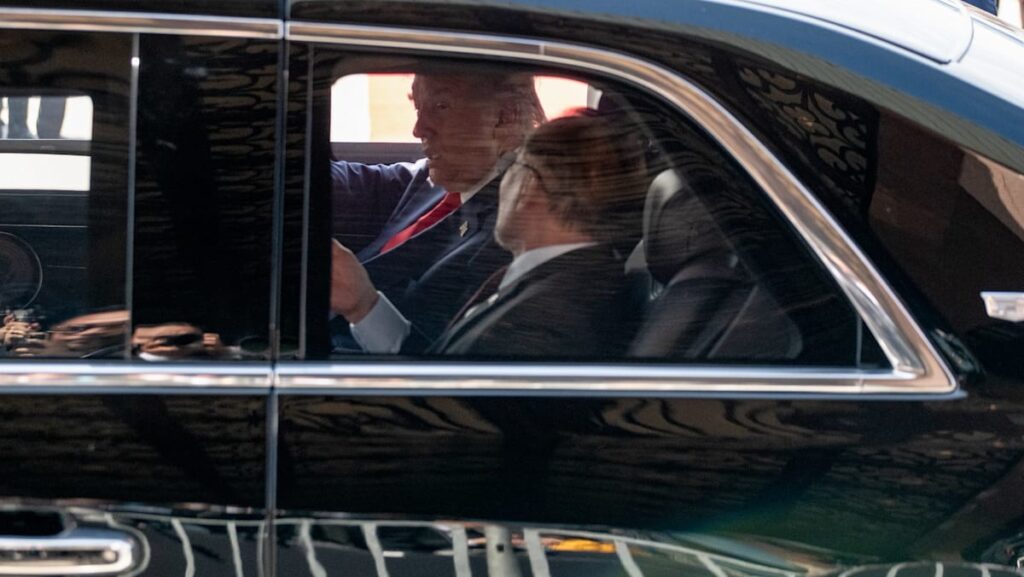Trump also inked deals with Thailand and Malaysia seeking cooperation to diversify critical minerals supply chains, amid competing efforts from China in the rapidly growing sector.
China, the world’s top miner and processor of rare earths, has imposed increasingly stringent export controls on its refining technology, sending global manufacturers scrambling to secure alternative supplies for critical minerals used widely in semiconductor chips, electric vehicles and military equipment.
Malaysia on Sunday agreed to refrain from banning or imposing quotas on exports to the US of critical minerals or rare earth elements, the countries said in a statement.
The statement however did not specify whether Malaysia’s pledge applied to raw or processed rare earths.
Malaysia, which has an estimated 16.1 million tonnes of rare earth deposits, has banned companies from exporting raw rare earths to prevent the loss of resources as it looks to develop its downstream sector.
Under the deal, Kuala Lumpur also agreed to provide significant preferential market access for industrial goods and agricultural imports from the US, the statement said.
This includes chemicals, machinery and passenger vehicles, as well as products such as dairy and poultry.
Meanwhile, Thailand would eliminate tariff barriers on approximately 99 per cent of goods, covering a full range of US industrial and food and agricultural products, both countries said.
Thailand, Malaysia, Cambodia and Vietnam also pledged to protect labour rights and strengthen environmental protections in the deals.
In Washington’s deal with Hanoi, both countries committed to address and prevent barriers to US agricultural products in the Vietnamese market.
The agreements were inked after Trump oversaw the signing of an enhanced ceasefire agreement between Thailand and Cambodia, following deadly border clashes between the Southeast Asian neighbours earlier this year.
Also speaking at the ASEAN-US Summit, Anwar pledged commitment that the regional bloc will adopt the ASEAN-US Joint Vision statement to “promote a stronger, safer, and more prosperous ASEAN and America”.
“This reflects our will and commitment to turn cooperation into concrete outcomes with tangible benefits for ASEAN and the US,” he added.
A Joint Vision Statement was inked in 2022 in Washington by then US President Joe Biden and Southeast Asian countries during the US-ASEAN Summit. It is not clear whether Anwar was referring to a new statement to be adopted by both sides.
The 2022 statement stated that the US and ASEAN would step up maritime cooperation, including coordination among maritime law agencies to curb illegal fishing, and ensure freedom of navigation over the South China Sea.
“We recognise the benefits of having the South China Sea as a sea of peace, stability, and prosperity. We emphasise the importance of practical measures that could reduce tensions and the risk of accidents, misunderstandings, and miscalculation,” the statement had said.
Since the 1990s, the regional bloc has been trying to negotiate a framework to manage disputes in one of the world’s most contested waterways with China. But talks have repeatedly stalled due to various reasons.
China claims nearly the entire South China Sea, a position that overlaps with four Southeast Asian neighbours – Malaysia, Brunei, the Philippines and Vietnam. Unresolved disputes over the ownership of islands and maritime features have persisted for decades.
On Sunday afternoon at around 4pm, around 200 protestors gathered at Ampang Park near the ASEAN Summit venue at the Kuala Lumpur Convention Centre.
This was the second demonstration on Sunday protesting Trump’s presence at the ASEAN Summit.
https://www.channelnewsasia.com/asia/trump-100-us-asean-summit-malaysia-5425816


